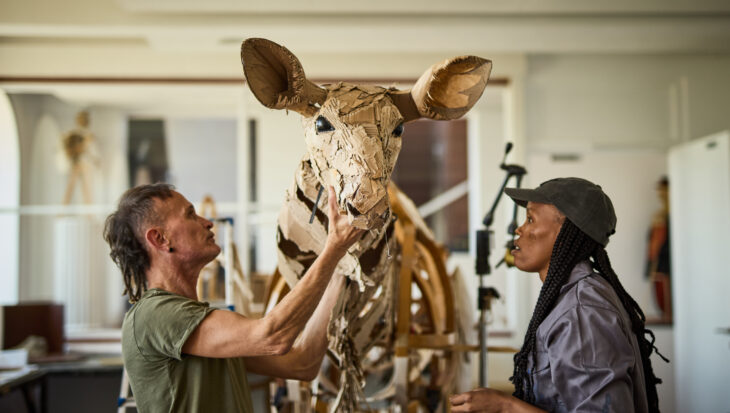‘The Herds’ will be arriving in London this Friday!
Have you heard? A breathtaking arts initiative, ‘The Herds’ will be arriving in London this Friday.
Posted 27 Jun 2025

Posted on the 16th February 2015
Animal Aid has this week published a detailed new Briefing – written especially for members of the Association of Medical Research Charities (AMRC) – making the scientific case against the use of animals in biomedical research. A copy has been provided to all 136 of its members, and will now be sent to hundreds of other research charities that are not AMRC affiliates.
Publication of the new booklet follows the discovery by Animal Aid that, since November 20 last year, every current or prospective AMRC member (see Notes) has been forced to publicly declare its support for vivisection. In a public statement when the pledge became mandatory, Animal Aid condemned it as ‘outrageously authoritarian’ because of the way it ‘denies research funders the right to exercise their independent judgment on a highly contentious issue’.
The national campaign group also wrote to every AMRC member, urging them to challenge the pledge edict. Animal Aid understands that its letter was the subject of a robust discussion at AMRC’s 2014 AGM, and that an undertaking was given at the time that the topic would be debated at a further meeting, whose date was not specified.
In order to ensure that all AMRC members are properly informed for this promised debate, Animal Aid has circulated the new Briefing. It points out: ‘The scientific case against animal use is now being voiced in the mainstream scientific media. A recent example is the BMJ article by Pound and Bracken [see Notes]. The authors noted that systematic reviews are exposing the fundamental weaknesses of the animal model, and went on to criticise pro-animal research lobby group Understanding Animal Research for relying too heavily on expert opinion, “one of the weakest forms of evidence”. The authors argued for more human-centred clinical research.’
For medical research charities, expulsion from, or non-admittance to, AMRC could prove expensive. Members enjoy the enhanced reputation and fundraising clout that derives from being part of a powerful, politically well-connected representative body. Specifically, the Association provides references for member charities seeking funding, as well as ‘opportunities for charities to work with industry and public funders’.
Says Animal Aid Director Andrew Tyler:
‘AMRC has tried to pass off its demand for a pro-vivisection oath of allegiance as a mark of “openness”. But it is no such thing. It is an insistence on conformity by a reactionary organisation which probably recognises that doubts over the medical value of animal-based research are becoming more and more resonant. Our new Briefing underlines just how weak the pro-vivisection case is. We are sending it to hundreds of other UK-based medical research charities as well as to all 136 AMRC members.’
Have you heard? A breathtaking arts initiative, ‘The Herds’ will be arriving in London this Friday.
Posted 27 Jun 2025

As the greyhound racing industry releases its annual data on the number of dogs’ deaths, a raft of well-known names - alongside their canine friends - has called upon the Government to end greyhound racing....
Posted 26 Jun 2025
